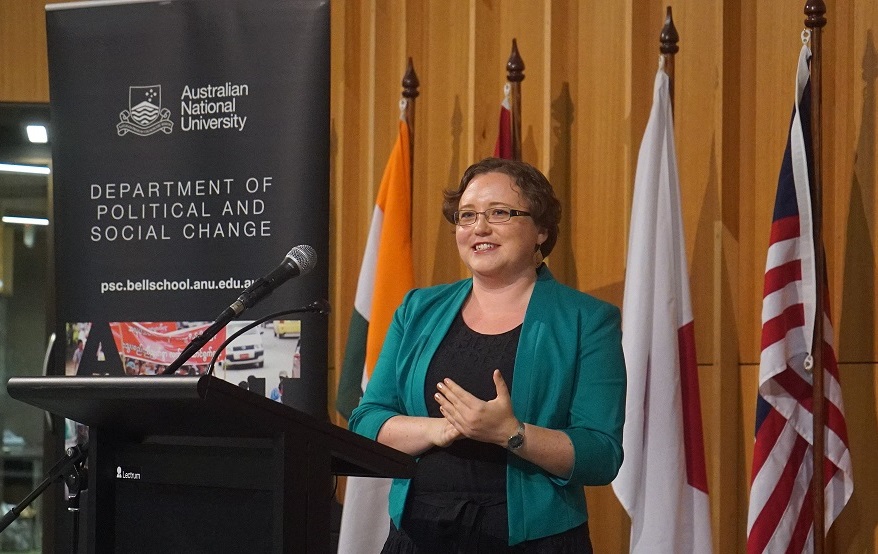
Rebecca Gidley
Coral Bell School of Asia Pacific Affairs
ANU College of Asia and the Pacific
Over the last three years of mostly casual employment at ANU I’ve been involved in teaching eleven different courses, organising three international conferences and running two institutional blogs. In the meantime, I’ve also published my first book.
Perhaps the most enriching and challenging teaching experience I’ve had at ANU was the first course I lectured and convened myself, on Human Rights in Asia. I found that with such heavy subject matter I had sometimes conflicting responsibilities to manage – my responsibility to the welfare of my students but also my responsibility to the victims to try and fully convey the abuses they suffer. The best approach I found was to discuss these challenges with my students. We decided, collaboratively, that the use of graphic images wouldn’t enhance our understanding, but that prioritising statements from survivors would. I’m also still learning how to approach these types of challenging topics. It always seems slightly odd to use the word ‘enjoy’, but I do enjoy guest lecturing on my research related to responses to mass violence in Cambodia. I’m still refining my balance between conveying the horrors of the Khmer Rouge regime and not totally overwhelming undergraduate students.
What I always find valuable, though, is watching students discover complexity where they were unaware of it. Whether it’s my first year students getting to grips with the immense diversity of political systems across Asia. Whether it’s my masters students reading documents from many centuries ago and understanding that ancient Southeast Asian kingdoms were just as multifaceted as current governments. Or even just interns discovering quite how long it can take to get a blog post ready to go live.
Outside of my teaching, there are two clear highlights from 2019. The first is my involvement with NECTAR. It has been an important site of support, of community and of advocacy. Most important for me has been working to make NECTAR an inclusive place for casual staff, and a vehicle to advocate for the needs of those casual staff members. Change is always slow in an institution like ours, but it’s gratifying to see people shift from obstacles to allies, or to find the parts of the system I can tweak to make the University gradually more inclusive of the casual staff it relies upon.
My second highlight for the year has been the publication of my first book, Illiberal Transitional Justice and the Extraordinary Chambers in the Courts of Cambodia. And rather than tell you about its excellence myself I’m going to close by letting one of its reviewers, Dr Craig Etcheson, tell you his take: “Navigating the twisting Byzantine pathways of Cambodia’s opaque political system with a sure hand, Rebecca Gidley offers a subtle, nuanced reading of Cambodia’s political scene. If the community of those studying transitional justice is persuaded by the arguments in this book, as well they should be, then a whole new genre of the literature will emerge which treats those illiberal examples of transitional justice”.
